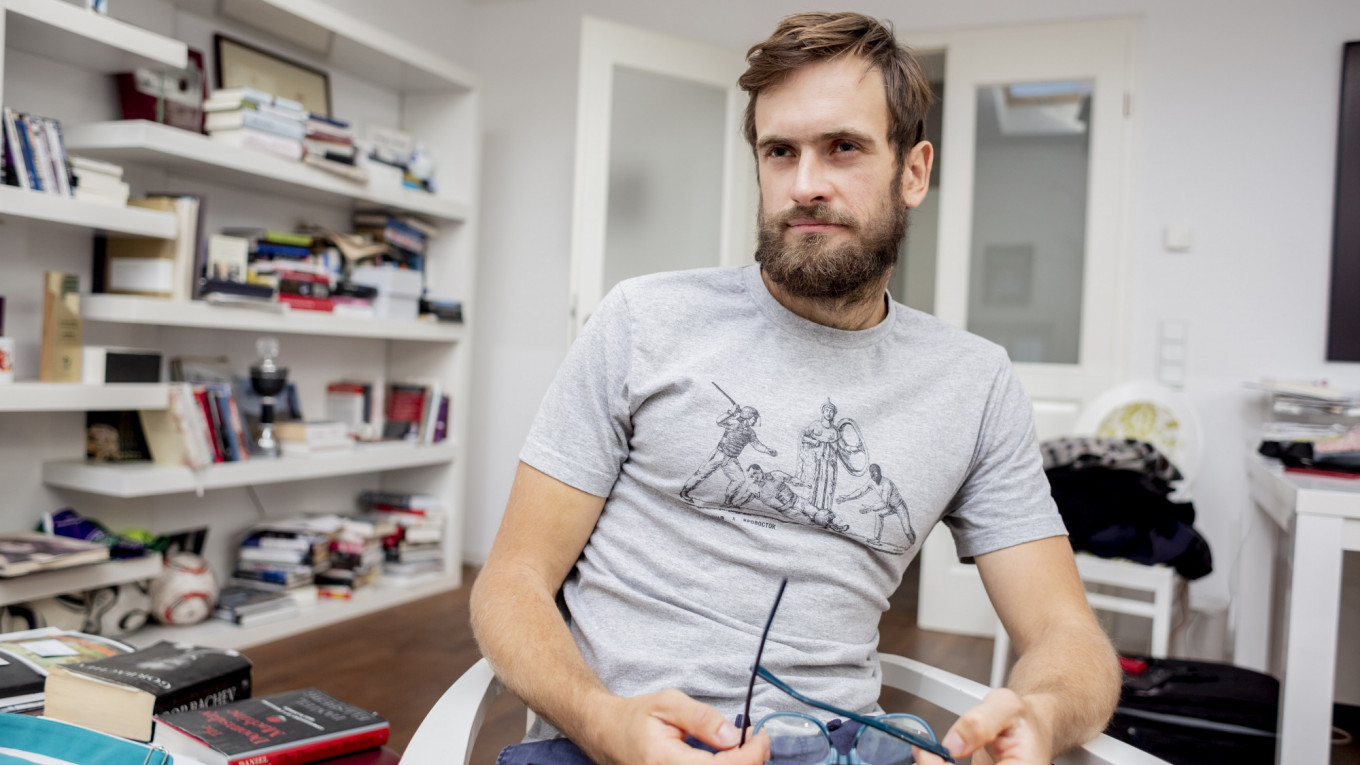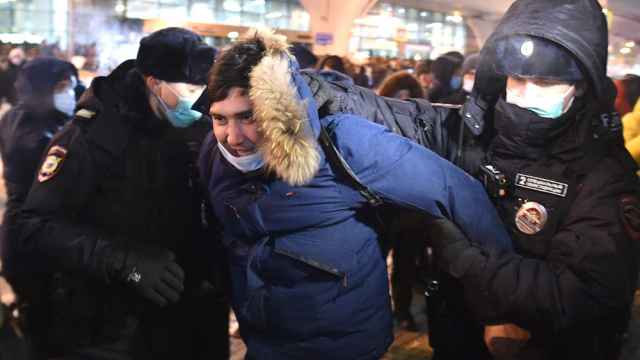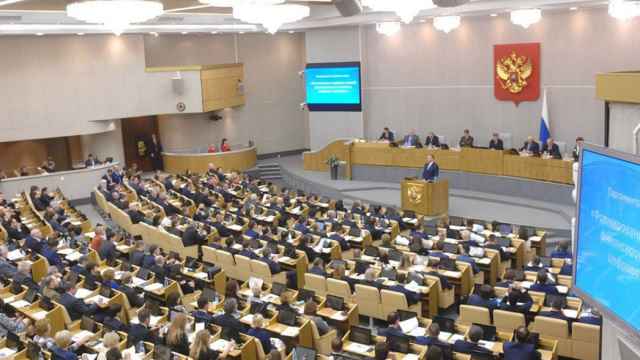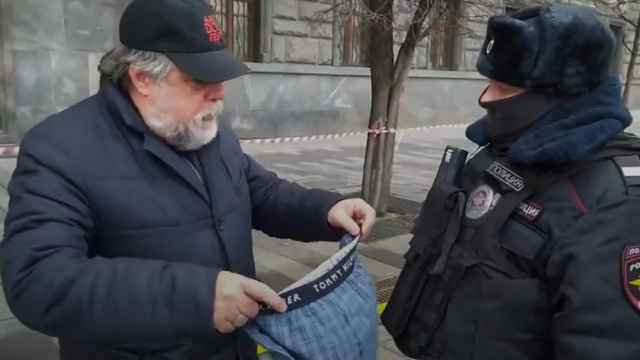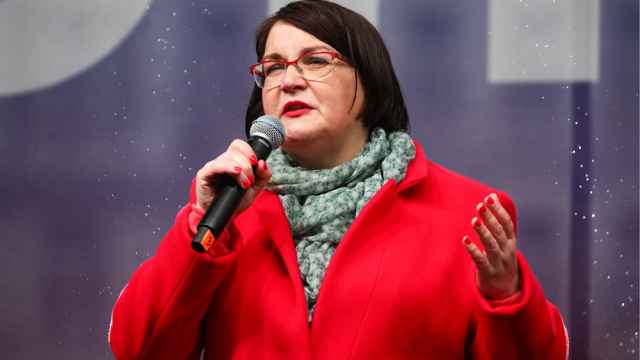Pyotr Verzilov looks tanned and energized as he orders a pot of green tea in a central Moscow cafe.
“The irony is, I feel much better now than before the poisoning,” says the Pussy Riot activist and publisher of the online investigative news site Mediazona.
Verzilov was rushed to a Moscow hospital on Sept. 11, 2018, after suddenly losing his sight, hearing and mobility. After three days he was airlifted to Germany.
Doctors at Berlin’s Charite hospital said he was suffering from anti-cholinergic syndrome, local and foreign media reported. The condition blocks the passage of some neurotransmitters. They added that the sudden onset of Verzilov’s sickness was strongly indicative of poisoning.
“It felt like I was in a dark hole,” Verzilov says of his physical and mental state after the incident.
Back in Russia after five months of what he calls “rehabilitation exile” in Israel, Verzilov says he is more determined than ever to try to transform the country into a free and just society.
“If you want to lead a political fight in Russia, you have to be prepared for all types of scenarios, including death.”
Russian prosecutors have yet to launch a probe into the incident. Verzilov is convinced that the poisoning was conducted by the security services who he joked “have a bit of history of doing this.”
Activists and security services have been on alert since former Russian double agent Sergei Skripal was poisoned in Britain last year in an attack blamed by London on Moscow.
Verzilov says that on the day he became ill he was meant to receive a report he had commissioned into the deaths of three Russian documentary filmmakers in the Central African Republic in July 2018.
Orkhan Dzhemal, Aleksandr Rastorguev and Kirill Radchenko died in mysterious circumstances in what Russia and the Central African Republic insist was a roadside robbery gone wrong.
They were in the country to investigate Russian private military company Wagner, which local and international media have reported operates in the Central African Republic.
A report into the journalists’ deaths published in January by Dossier, an investigative outlet financed by tycoon-turned-opposition figure Mikhail Khodorkovsky, questioned the ambush theory.
Rastorguyev was Verzilov’s close friend and collaborator, and Verzilov says he nearly joined the ill-fated trip to investigate reports of Russian mercenary activity in the country.
At the last minute, he decided to stay in Russia to participate in a protest pitch invasion during the final of the FIFA World Cup that landed him in jail for 15 days.
Verzilov says that his own investigations have linked Evgeny Prigozhin to the events in the Central African Republic.
Prigozhin is a businessman and caterer, dubbed “Putin’s Chef” by the Russian media because of his close ties to the Russian president.
Verzilov is convinced that his involvement in the Central African Republic investigations and the World Cup pitch invasion led to his apparent poisoning.
“It could have been a combination of the two, and things just piled up,” he says.
However, the investigation is not the only thing that is keeping him busy on his return to Moscow.
Verzilov defines himself as “a political artist first and foremost.”
He was a co-founder of the scandal-raising Pussy Riot, and married to Nadezhda Tolokonnikova, who served two years in a penal colony for her part in the group’s anti-Putin Punk Prayer protest in Moscow’s main cathedral.
He also founded another collective, Voina, famous for staging a live sex show in a Moscow museum to protest the 2008 election of Dmitry Medvedev as Russian president.
Verzilov says political art as protest operates very differently from conventional street rallies, but that “both forms of expressions are needed to change society.”
He firmly believes ordinary Russians see value in the actions of collectives like Pussy Riot and Voina, and support them.
“When I was locked up for the World Cup stunt, my prison guards en masse asked me to sign autographs for their friends and relatives,” he says. “These cops, who earn 40,000 rubles ($622) a month, were understanding of our motives to run out on that pitch.”
Verzilov says he will continue to play his role in making Russian political art one of the country’s most famous trademarks abroad.
“When you go to a random city in the U.S. people will often know two Russian names, Putin and Pussy Riot.”
A Message from The Moscow Times:
Dear readers,
We are facing unprecedented challenges. Russia's Prosecutor General's Office has designated The Moscow Times as an "undesirable" organization, criminalizing our work and putting our staff at risk of prosecution. This follows our earlier unjust labeling as a "foreign agent."
These actions are direct attempts to silence independent journalism in Russia. The authorities claim our work "discredits the decisions of the Russian leadership." We see things differently: we strive to provide accurate, unbiased reporting on Russia.
We, the journalists of The Moscow Times, refuse to be silenced. But to continue our work, we need your help.
Your support, no matter how small, makes a world of difference. If you can, please support us monthly starting from just $2. It's quick to set up, and every contribution makes a significant impact.
By supporting The Moscow Times, you're defending open, independent journalism in the face of repression. Thank you for standing with us.
Remind me later.



